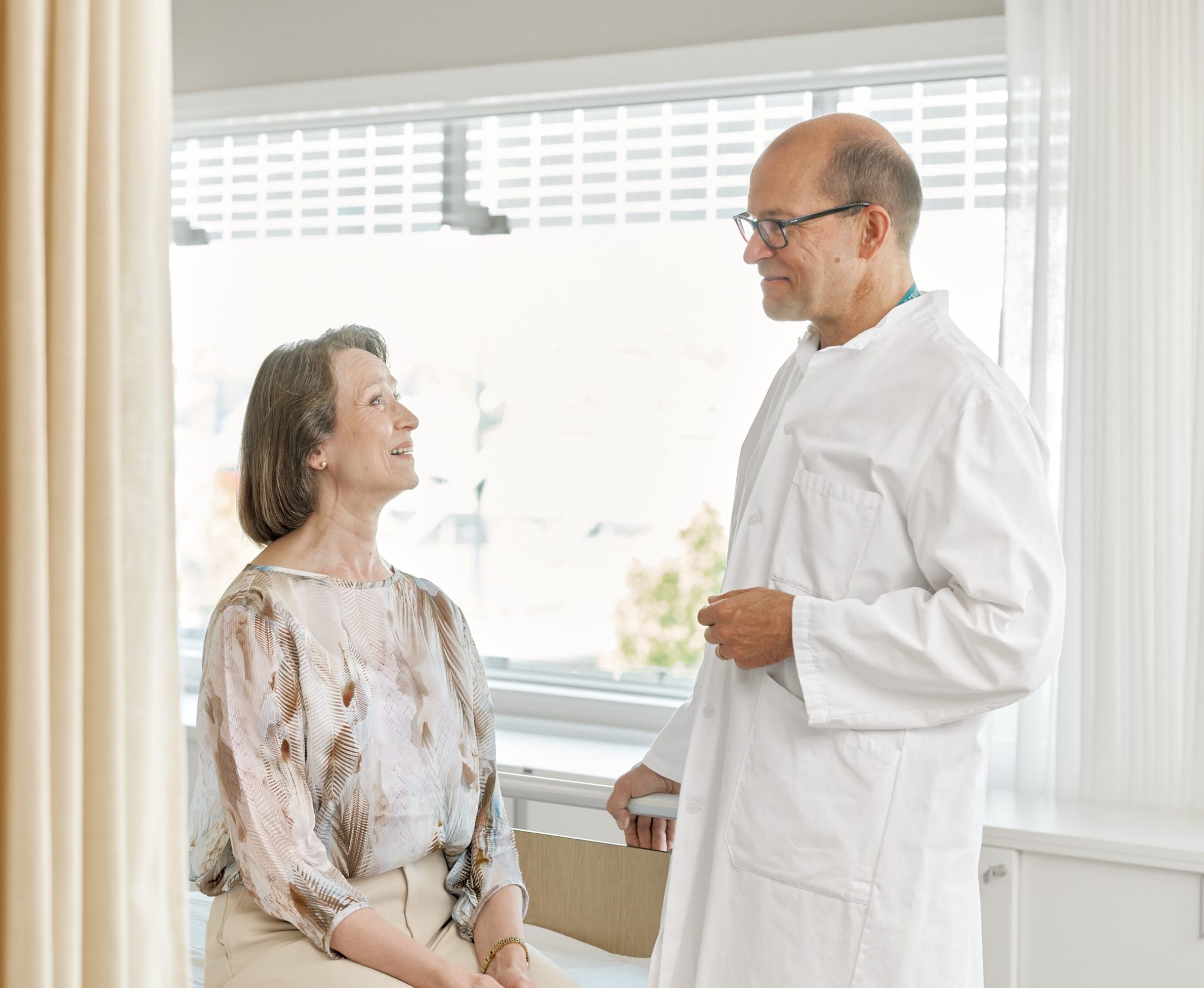Breast reconstruction surgery means meticulous craftsmanship by experienced surgeons
Reconstructing a removed breast is part of the treatment path of many breast cancer patients. The goal of the surgery...
Read moreMon–Thu 8–18, Fri 8–16

At Docrates Cancer Center, it is possible to determine your hereditary predisposition to cancer using a simple genetic test on a blood sample. The sample is analyzed by the Finnish genetic testing laboratory Blueprint Genetics. You will receive the results of the test within five weeks.
In general, cancer is not hereditary, but it is estimated that about 5 to 10 percent of cancers are due to a hereditary predisposition to cancer. Hereditary cancer is suspected if
Rare inherited forms are known from almost all cancers. Most commonly found in hereditary susceptibility to breast and ovarian cancer as well as colon cancer.
The test is done on a blood sample and you will get the results within five weeks. The sample is analyzed by the Finnish genetic testing laboratory Blueprint Genetics (FINAS and CAP accreditations, CE-marked tests). Blueprint Genetics uses the latest, state-of-the-art gene sequencing technology in testing, and the test results are interpreted by experienced geneticists. You will also meet with our hereditary doctor either before sampling or after the results of the genetic test will arrive.
The most typical genetic test for testing for hereditary cancer is the Hereditary Cancer High Risk gene panel, which analyzes a group of genes whose changes are known to predispose to hereditary cancer.
Genetic testing is a quick way to determine your hereditary cancer risk, but the cancer itself is not found on genetic testing. By identifying the hereditary risk factors for cancer, you are more alert and can lower your risk of cancer with your lifestyle or possible treatment measures.
A positive test result indicates an increased risk of developing cancer. The result provides additional information about the likelihood of becoming ill and provides information about the need for testing of other family members. You can make lifestyle choices, be more active in monitoring, or consider preventative treatment measures. At Docrates Cancer Center, it is possible for you to customize your personal follow-up program.
A negative test result means that no changes have been found in your genome that are known to predispose to cancer. However, in addition to hereditary factors, other factors such as general health, lifestyle and environmental factors also affect cancer risk. A negative test result therefore does not rule out the possibility of developing cancer. If you have a high incidence of cancer in your family, you may be at a higher risk of developing (a particular) cancer, even if the test is negative, because not all the genetic changes associated with cancer susceptibility are yet known.
An uncertain test result means that a genetic change has been found, but there is not enough information about its link to hereditary cancer. There are many harmless changes in the human genome that do not necessarily cause any harm to health. Our knowledge of genes is still limited, meaning that there may not yet be enough information about the link between a particular genetic change and hereditary cancer.
If your hereditary risk of developing cancer is a concern, please don’t hesitate to contact us and ask more +358 10 773 2010.
Reconstructing a removed breast is part of the treatment path of many breast cancer patients. The goal of the surgery...
Read more
New forms of treatment based on molecular diagnostics enable more and more patients to completely recover from cancer, and make...

With a transaction signed on 2 September 2024, Mehiläinen has acquired Docrates Ltd, as a result of which Docrates Cancer...

On 27, August 2024, the Finnish Competition and Consumer Authority (FCCA) approved the merger of Mehiläinen and Docrates Cancer Center....
Contact us!
Mon-Thu 8:00-18:00, Fri 8:00-16:00
